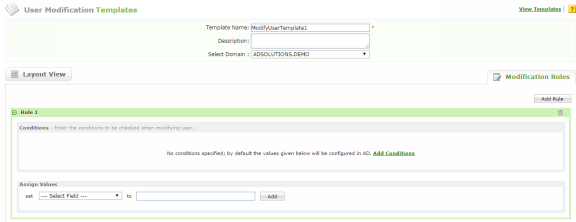The latest VoIP market trends show a strong inclination towards SIP(Session Initiation Protocol). It is definitely encouraging to see the VoIP industry converge toward a common standard to get rid of all the interoperability problems and pass on the true benefits of VoIP to the consumer. And no surprises seeing Microsoft, Cisco and Skype who started out with their own proprietary standards now adopting SIP.
Here at VQManager, we started our VoIP monitoring solution by supporting SIP, due to it’s simplicity, capabilities & in-depth design details. Along the way, we ensured that the major VoIP protocols – SIP, Cisco SCCP and H.323, were also covered. If you dig a little into VQManager you’ll realize that a number of features are available on the SIP side of things and not present for the other protocols e.g. SIP end-point registration tracking, SIP error code based alarms, reports etc. We come across a lot of customers who migrate to SIP phase-by-phase and we having support for the major protocols has helped such customers.
I’m picking a few quotes I found online mentioning the growing importance of SIP as a common standard for VoIP.
I’m picking a few quotes I found online mentioning the growing importance of SIP as a common standard for VoIP.
Cisco the market leader started adopting SIP in its latest invention CUCM 7.0+(Cisco Unified Communications Manager).
Avaya is the leading player in VoIP, recently Avaya acquired Nortel. In the latest update Avaya is planning to use Session Initiation Protocol (SIP) for all its VoIP deployment, also planning to migrate the existing customer base of both Avaya & Nortel smoothly.
Now-a-days, the SIP based Open source VoIP server Asterisk is gaining popularity in SMB’s and VoIP Service providers.
Skype and ShoreTel, Inc., (NASDAQ: SHOR), the leading provider of brilliantly simple IP phone systems with fully integrated Unified Communications (UC), announced interoperability between ShoreTel’s UC system and the beta version of Skype for SIP. ShoreTel is the world’s first UC vendor to achieve interoperability with Skype for SIP.
Check SIP Trunking Adoption Poll via NoJitter http://www.nojitter.com/blog/archives/2010/05/sip_trunking_ad.html
Skype is taking business internet communications to a whole new level with Skype for SIP Open Beta.
Google reports that they are working on adding new features such as supporting SIP in a future release, which would broaden the user base for the program.
Steven J. Johnson is President of Ingate Systems
We are seeing a strong adoption of SIP in enterprises of all sizes and this adoption has been accelerated by SIP trunking as a service from multiple ITSPs. From our experience with customers, we’ve found that cost benefits of SIP trunking seem to be most pronounced in organizations of up to 500 people.
Why the wide acceptance of SIP:
- Since SIP is a text-based implementa
tion, development and debugging is easier compared to the other protocols (Syntactically, SIP is very similar to HTTP) - SIP’s simplicity doesn’t compromise on power/capabilities
- Supports a wide range of media types
- It is a peer to peer protocol that requires no centralized server to work. The user agents themselves do the communication
- SIP can run on UDP/TCP
- SIP allows changing features of a session while it is in progress (e.g. changing addresses or ports, inviting more participants, adding or deleting media streams, etc.)
- SIP has been standardized and governed primarily by the IETF, while other protocols, such as H.323, have traditionally been associated with the International Telecommunication Union (ITU)
- SIP was accepted as a 3GPP signaling protocol and permanent element of the IP Multimedia Subsystem (IMS) architecture for IP-based streaming multimedia services in cellular systems
- The protocol can be used for creating, modifying and terminating two-party (unicast) or multiparty (multicast) sessions consisting of one or several media streams
- SIP is a carrier-class solution
Where SIP is going:
- IPTV enabled via SIP
- Desktop sharing with SIP
- SIP-based carrier services particularly Fax-over-Internet-Protocol (FOIP).
- SIP over video
- SIP in File transfer and Instant Messaging(SIMPLE)
- Google Talk, which extends XMPP to support voice, plans to integrate SIP.
Moving forward, VQManager will look at reporting on the entire SIP suite based on market need and priority. While the industry undergoes the slow transformation and convergence towards SIP, we at VQManager will also focus on ensuring businesses and consumers enjoy a smooth transition.
regards,
Subash
VQManager |Twitter | demo
References
- http://www.cisco.com/en/US/products/sw/voicesw/ps2156/index.html
- http://blog.shoretel.com/2009/12/shoretel-customers-line-up-for-skype.html
- http://www.skype.com/intl/en/business/sip/overview
- Various SIP standards and its functionality http://sipsimpleclient.com/wiki/SipFeatures
- FOIP – http://www.fiercevoip.com/story/more-interoperability-sip-forum-teams-i3-forum-targets-foip/2010-05-20
- http://technet.microsoft.com/en-us/library/bb457036.aspx#ECAA
- http://technet.microsoft.com/en-us/library/dd572758(office.13).aspx
Tags : 3GPP / CUCM / FOIP / Monitoring SIP / Shoretel / SIMPLE / SIP Adoption / Skype / VoIP interoperability / XMPP

This innovation on telecommunication is just interesting. We are sure that in the future there will be more providers for this SIP or VoIP.